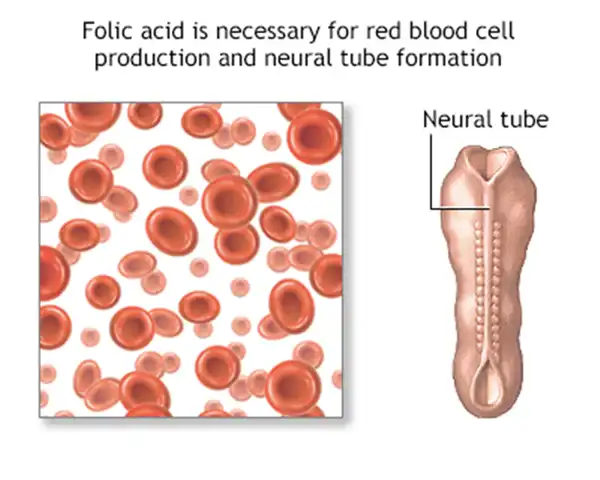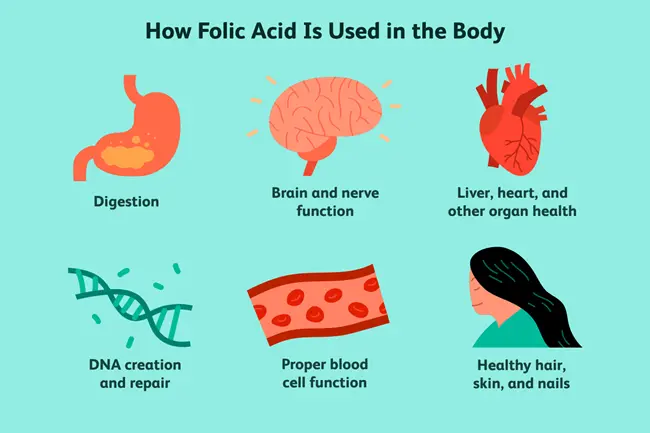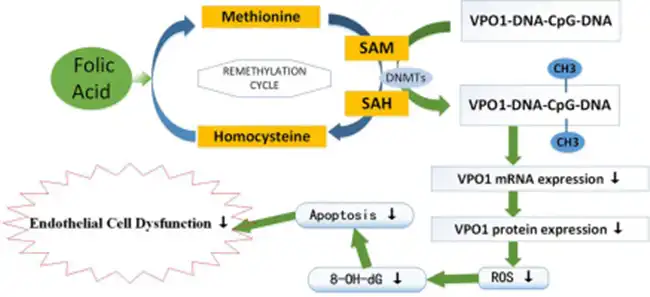The Science Behind Folic Acid Powder
2024-12-25 15:25:43
Folic acid powder, a synthetic form of vitamin B9, plays a crucial role in numerous biological processes essential for human health. This water-soluble vitamin is vital for cellular metabolism, DNA synthesis, and proper fetal development. The science behind folic acid powder reveals its importance in preventing birth defects, supporting cardiovascular health, and maintaining optimal cellular function. As a key player in one-carbon metabolism, folic acid acts as a coenzyme in various biochemical reactions, including the production of red blood cells and the metabolism of homocysteine. Understanding the mechanisms of folic acid at the molecular level provides insights into its wide-ranging benefits and its potential applications in preventive healthcare and nutritional supplementation.
How Folic Acid Powder Supports Cellular Health?
Cellular Metabolism and Energy Production
Folic acid powder is an indispensable component in cellular metabolism. It acts as a coenzyme in numerous biochemical reactions, particularly in the synthesis of purines and pyrimidines, which are building blocks of DNA and RNA. This process is crucial for cell division and growth, especially in rapidly dividing cells such as those in the bone marrow and intestinal lining. The involvement of folic acid in these metabolic pathways ensures that cells have the necessary components for energy production and maintenance of cellular integrity.
Methylation Processes and Gene Expression
One of the most significant roles of folic acid powder in cellular health is its participation in methylation processes. Methylation is a biochemical process where a methyl group is added to various molecules, including DNA, proteins, and lipids. This process is critical for gene expression regulation, which determines which genes are activated or silenced. Folic acid, in its active form as tetrahydrofolate, serves as a methyl donor in these reactions. Proper methylation is essential for maintaining genomic stability, controlling gene expression, and influencing cellular differentiation.
Antioxidant Properties and Cellular Protection
While not primarily known for its antioxidant properties, folic acid powder does contribute to cellular protection against oxidative stress. It helps in the synthesis of glutathione, a potent antioxidant that neutralizes harmful free radicals in cells. Additionally, folic acid's role in DNA repair mechanisms indirectly supports cellular health by maintaining genomic integrity in the face of oxidative damage. This protective function is particularly important in preventing cellular mutations that could lead to various pathological conditions, including certain types of cancer.
The Benefits of Folic Acid in Preventing Deficiencies
Neural Tube Defects Prevention
One of the most well-established roles of folic acid powder is in the prevention of neural tube defects (NTDs) during fetal development. NTDs are serious birth defects affecting the brain and spinal cord, such as spina bifida and anencephaly. Adequate folic acid intake before and during early pregnancy significantly reduces the risk of these defects. The mechanism involves folic acid's crucial role in DNA synthesis and cell division, which are particularly important during the rapid development of the fetal nervous system. Public health initiatives promoting folic acid supplementation have led to a substantial decrease in NTD incidence worldwide.
Megaloblastic Anemia Management
Folic acid deficiency is a common cause of megaloblastic anemia, a condition characterized by the production of abnormally large, immature red blood cells. Pure folic acid powder supplementation is an effective treatment for this type of anemia. Folic acid is essential for the proper maturation of red blood cells in the bone marrow. It works in conjunction with vitamin B12 to ensure the correct synthesis of DNA during red blood cell formation. By addressing folic acid deficiency, the body can resume normal red blood cell production, alleviating anemia symptoms and improving overall health.
Cardiovascular Health Support
Folic acid powder plays a significant role in cardiovascular health by helping to regulate homocysteine levels in the blood. Elevated homocysteine is associated with an increased risk of heart disease and stroke. Folic acid, along with vitamins B6 and B12, is involved in the metabolism of homocysteine, converting it to methionine. By maintaining optimal folic acid levels, individuals can potentially reduce their risk of cardiovascular issues. This protective effect is particularly important for populations at higher risk of heart disease or those with genetic predispositions to elevated homocysteine levels.
Folic Acid Powder and Its benefits in DNA Repair
DNA Synthesis and Replication
Folic acid bulk powder is crucial in the process of DNA synthesis and replication. It serves as a key component in the production of nucleotides, the building blocks of DNA. Specifically, folic acid is involved in the synthesis of purines (adenine and guanine) and pyrimidines (thymine and cytosine). This role is particularly critical during periods of rapid cell division, such as fetal development and tissue repair. By ensuring an adequate supply of nucleotides, folic acid helps maintain the integrity and accuracy of DNA replication, which is essential for normal cellular function and growth.
DNA Methylation and Epigenetic Regulation
Beyond its role in DNA synthesis, folic acid powder is integral to DNA methylation, a key epigenetic process. DNA methylation involves the addition of methyl groups to specific regions of DNA, which can activate or silence genes. This process is crucial for normal gene expression and cellular differentiation. Folic acid, in its active form as 5-methyltetrahydrofolate, provides the methyl groups necessary for this process. Proper DNA methylation is essential for genomic stability and plays a role in various biological processes, including embryonic development, aging, and disease prevention.
DNA Damage Response and Repair Mechanisms
Folic acid powder also contributes to the body's DNA damage response and repair mechanisms. DNA is constantly subjected to damage from various sources, including environmental factors and normal cellular processes. Folic acid's role in nucleotide synthesis is crucial for providing the necessary building blocks for DNA repair. Additionally, its involvement in methylation processes supports the regulation of genes involved in DNA repair pathways. Adequate folic acid levels help maintain genomic stability by supporting efficient DNA repair, which is essential for preventing mutations that could lead to various health issues, including certain types of cancer.
Conclusion
The science behind folic acid powder reveals its fundamental importance in human health. From supporting cellular metabolism and preventing birth defects to maintaining cardiovascular health and facilitating DNA repair, folic acid plays a multifaceted role in our bodies. Its ability to influence cellular processes at the molecular level underscores its significance in preventive healthcare and nutritional supplementation. As research continues to uncover new aspects of folic acid's functions, its role in promoting overall health and well-being becomes increasingly apparent, highlighting the importance of ensuring adequate folic acid intake through diet and supplementation.
Contact Us
For more information about our high-quality folic acid powder products and how they can benefit your health or business, please contact us at Jessica@xazbbio.com. Our team of experts is ready to assist you with any questions and provide detailed information about our pure folic acid powder and bulk folic acid powder options. We can provide folic acid capsules or folic acid supplements. Our factory also can supply OEM/ODM One-stop service,including customized packaging and labels.
References
1. Crider, K. S., Bailey, L. B., & Berry, R. J. (2011). Folic acid food fortification—its history, effect, concerns, and future directions. Nutrients, 3(3), 370-384.
2. Fenech, M. (2012). Folate (vitamin B9) and vitamin B12 and their function in the maintenance of nuclear and mitochondrial genome integrity. Mutation Research/Fundamental and Molecular Mechanisms of Mutagenesis, 733(1-2), 21-33.
3. Imbard, A., Benoist, J. F., & Blom, H. J. (2013). Neural tube defects, folic acid and methylation. International journal of environmental research and public health, 10(9), 4352-4389.
4. Crider, K. S., Yang, T. P., Berry, R. J., & Bailey, L. B. (2012). Folate and DNA methylation: a review of molecular mechanisms and the evidence for folate's role. Advances in nutrition, 3(1), 21-38.
5. Choi, S. W., & Mason, J. B. (2000). Folate and carcinogenesis: an integrated scheme. The Journal of nutrition, 130(2), 129-132.
6. Stover, P. J. (2004). Physiology of folate and vitamin B12 in health and disease. Nutrition reviews, 62(suppl_1), S3-S12.
Send Inquiry
You may like





